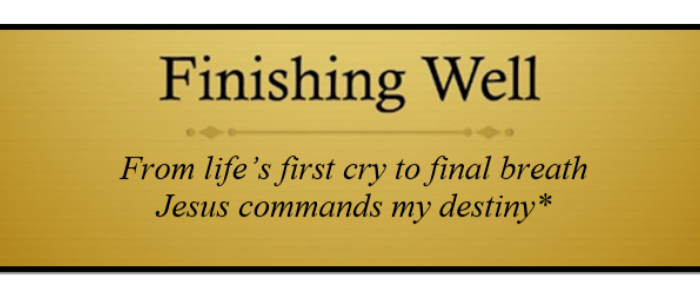Posted on February 3, 2017 by Pastor Jonathan Conner
Aging & Elderly Outreach

Share
On November 1, 2014, Brittany Maynard, a 29-year- old Oregon woman with terminal brain cancer, launched physician directed suicide into the national spotlight when she, with medication prescribed by her doctor, committed suicide. Before she died, she posted these words on Facebook:
Goodbye to all my dear friends and family that I love. Today is the day that I have chosen to pass away with dignity in the face of my terminal illness, this terrible brain cancer that has taken so much from me… but would have taken so much more.
On the other side of the country, in Connecticut, another woman was enduring the same cancer, but was making a different choice, and receiving far less media praise for it. Her name was Maggie Karner. She was the director of our church body’s Life and Health Ministries, and she was choosing not to commit suicide, but to rest in the promises of God. She understood that her cancer would take her life, but she publicly confessed that she would not take her own life. Consider her raw but confident words:
Death sucks. And while this leads many to attempt to calm their fears by grasping for personal control over the situation, as a Christian with a Savior who loves me dearly and who has redeemed me from a dying world, I have a higher calling. God wants me to be comfortable in my dependence on Him and others, to live in peace and comfort no matter what comes my way.
Both women faced terminal diagnoses and the potential for great suffering. In our evaluation of their choices, we can’t downplay this painful reality and how heavily it weighed on them. However, as Christians we would do well to consider how to handle such difficult issues. How should we handle end of life questions?
Let’s start with our foundational confession. Dr. John Pless (theology professor at Concordia Theological Seminary in Ft. Wayne) expresses it succinctly in his little booklet Mercy at Life’s End: “Life is not self-generated or self-owned; it is a gift to be received and cherished until the Lord Himself recalls it.”
As the modern hymn “In Christ Alone” has captured it: “From life’s first cry to final breath Jesus commands my destiny.” Our life is, in fact, not ours. By nature of our status as created and redeemed people, we are doubly owned. Terminal cancer is a devastating diagnosis, but it doesn’t change this reality, so it doesn’t give us the right to wrest control from our Creator and Redeemer.
Consider again something Mrs. Karner said:
As for my cancer journey, circumstances out of my control are not the worst thing that can happen to me. The worst thing would be losing faith, refusing to trust in God’s purpose in my life and trying to grab that control myself.
Doctor directed suicide isn’t ultimately about “death with dignity” just like abortion isn’t ultimately about women’s health care; it (and abortion) is ultimately about control (one about control over life’s beginning and the other about control over life’s end). Mrs. Maynard indicated as much when she wrote “Today is the day that I have chosen to pass away…” This is why doctor directed suicide is becoming such a divisive issue. It’s about control – who controls life’s beginning, continuance, and end.
As confessing Christians, we understand that confessing Christ’s sovereignty over our life may bring suffering with it, but we also know that 1) life isn’t God (much less the quality of life!) and because life isn’t God it shouldn’t be worshiped and 2) our call as disciples is to finish well by confessing Christ’s lordship until our very last breath.
*Lyrics from “In Christ Alone” by Keith Getty and
Stuart Townend
More posts about Aging & Elderly Outreach